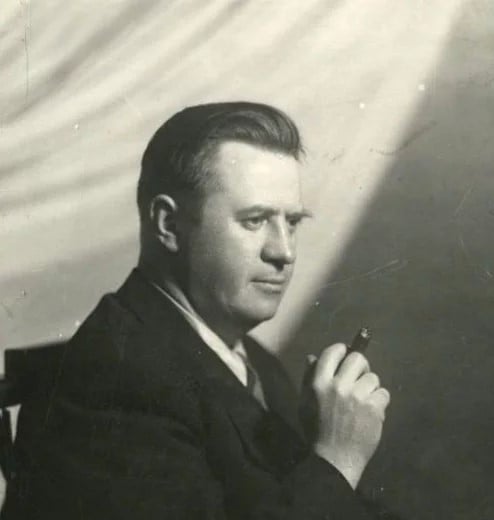
Gavriil Nikolayevich Popov
d. 17 February 1972, Repino
Born on 30 August 1904 in the southern Russian industrial city of Novocherkassk, Gavriil Nikolayevich Popov's individualistic, contrasting and always stirring musical language has repeatedly polarised not only in his native Russia, but also internationally. In the 1920s, he began to adapt the avant-garde trends of the West, but failed to do so due to resistance from the Central Committee of the CPSU, which was primarily directed against his First Symphony, which was not premiered until 1935.
He received his first composition lessons from none other than Mikhail Gnessin, then studied piano and composition at the conservatory in Rostov-on-Don from 1917 to 1921 before moving to the Leningrad Conservatory. He was taught there by Vladimir Shcherbachev and Leonid Nikolayev, among others, until 1930. Popov was a man of many interests, who was also intensively involved in literature and archaeology, which was partly reflected in his compositions. At the time, he was a highly talented pianist who performed for a living in a dance studio, just as Dmitri Shostakovich, who was almost the same age, did with live accompaniment to silent films in Russian cinemas. From 1920 to 1930, Popov was a member of the Association for Contemporary Music (ASM), where he exchanged ideas with many young colleagues. In 1927, he took up a teaching position for piano and composition at the Leningrad Music School, which he held until 1931. Differences with Soviet cultural politicians intensified in the mid-1930s, but Popov was still active as a functionary in the Leningrad Composers' Association from 1932 to 1936. His later works often contain references to the history and present of the Soviet Union, although his identification with these themes was often questioned in retrospect.
He moved to Moscow in 1944 and was again increasingly attacked by the Central Committee of the CPSU in the formalism debate after the Second World War. In 1946, however, he received the Stalin Prize, a high honour from the Soviet Union, for his Symphony No. 2. Many admirers of his work have regretted that Popov did not return to the progressiveness and curiosity that had so characterised his early work in the second half of his life.
In the 1950s and especially the 1960s, Popov suffered increasingly from alcohol addiction, which may have contributed to his death on 17 February 1972 in Repino near Leningrad.
The biography may be reprinted free of charge in programme booklets with the following credit: Reprinted with kind permission of the music publisher Boosey & Hawkes/Sikorski
